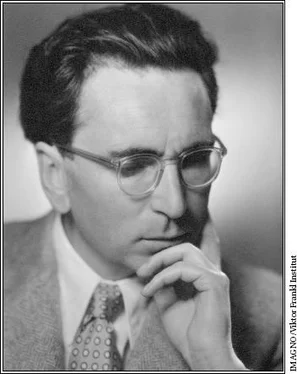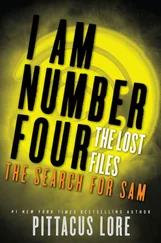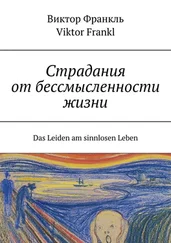The third aspect of the tragic triad concerns death. But it concerns life as well, for at any time each of the moments of which life consists is dying, and that moment will never recur. And yet is not this transitoriness a reminder that challenges us to make the best possible use of each moment of our lives? It certainly is, and hence my imperative: Live as if you were living for the second time and had acted as wrongly the first time as you are about to act now .
In fact, the opportunities to act properly, the potentialities to fulfill a meaning, are affected by the irreversibility of our lives. But also the potentialities alone are so affected. For as soon as we have used an opportunity and have actualized a potential meaning, we have done so once and for all. We have rescued it into the past wherein it has been safely delivered and deposited. In the past, nothing is irretrievably lost, but rather, on the contrary, everything is irrevocably stored and treasured. To be sure, people tend to see only the stubble fields of transitoriness but overlook and forget the full granaries of the past into which they have brought the harvest of their lives: the deeds done, the loves loved, and last but not least, the sufferings they have gone through with courage and dignity.
From this one may see that there is no reason to pity old people. Instead, young people should envy them. It is true that the old have no opportunities, no possibilities in the future. But they have more than that. Instead of possibilities in the future, they have realities in the past—the potentialities they have actualized, the meanings they have fulfilled, the values they have realized—and nothing and nobody can ever remove these assets from the past.
In view of the possibility of finding meaning in suffering, life’s meaning is an unconditional one, at least potentially. That unconditional meaning, however, is paralleled by the unconditional value of each and every person. It is that which warrants the indelible quality of the dignity of man. Just as life remains potentially meaningful under any conditions, even those which are most miserable, so too does the value of each and every person stay with him or her, and it does so because it is based on the values that he or she has realized in the past, and is not contingent on the usefulness that he or she may or may not retain in the present.
More specifically, this usefulness is usually defined in terms of functioning for the benefit of society. But today’s society is characterized by achievement orientation, and consequently it adores people who are successful and happy and, in particular, it adores the young. It virtually ignores the value of all those who are otherwise, and in so doing blurs the decisive difference between being valuable in the sense of dignity and being valuable in the sense of usefulness. If one is not cognizant of this difference and holds that an individual’s value stems only from his present usefulness, then, believe me, one owes it only to personal inconsistency not to plead for euthanasia along the lines of Hitler’s program, that is to say, “mercy” killing of all those who have lost their social usefulness, be it because of old age, incurable illness, mental deterioration, or whatever handicap they may suffer.
Confounding the dignity of man with mere usefulness arises from a conceptual confusion that in turn may be traced back to the contemporary nihilism transmitted on many an academic campus and many an analytical couch. Even in the setting of training analyses such an indoctrination may take place. Nihilism does not contend that there is nothing, but it states that everything is meaningless. And George A. Sargent was right when he promulgated the concept of “learned meaninglessness.” He himself remembered a therapist who said, “George, you must realize that the world is a joke. There is no justice, everything is random. Only when you realize this will you understand how silly it is to take yourself seriously. There is no grand purpose in the universe. It just is . There’s no particular meaning in what decision you make today about how to act.” 13
One must not generalize such a criticism. In principle, training is indispensable, but if so, therapists should see their task in immunizing the trainee against nihilism rather than inoculating him with the cynicism that is a defense mechanism against their own nihilism.
Logotherapists may even conform to some of the training and licensing requirements stipulated by the other schools of psychotherapy. In other words, one may howl with the wolves, if need be, but when doing so, one should be, I would urge, a sheep in wolf’s clothing. There is no need to become untrue to the basic concept of man and the principles of the philosophy of life inherent in logotherapy. Such a loyalty is not hard to maintain in view of the fact that, as Elisabeth S. Lukas once pointed out, “throughout the history of psychotherapy, there has never been a school as undogmatic as logotherapy.” 14And at the First World Congress of Logotherapy (San Diego, California, November 6–8, 1980) I argued not only for the rehumanization of psychotherapy but also for what I called “the degurufication of logotherapy.” My interest does not lie in raising parrots that just rehash “their master’s voice,” but rather in passing the torch to “independent and inventive, innovative and creative spirits.”
Sigmund Freud once asserted, “Let one attempt to expose a number of the most diverse people uniformly to hunger. With the increase of the imperative urge of hunger all individual differences will blur, and in their stead will appear the uniform expression of the one unstilled urge.” Thank heaven, Sigmund Freud was spared knowing the concentration camps from the inside. His subjects lay on a couch designed in the plush style of Victorian culture, not in the filth of Auschwitz. There , the “individual differences” did not “blur” but, on the contrary, people became more different; people unmasked themselves, both the swine and the saints. And today you need no longer hesitate to use the word “saints”: think of Father Maximilian Kolbe who was starved and finally murdered by an injection of carbolic acid at Auschwitz and who in 1983 was canonized.
You may be prone to blame me for invoking examples that are the exceptions to the rule. “Sed omnia praeclara tam difficilia quam rara sunt” (but everything great is just as diffcult to realize as it is rare to find) reads the last sentence of the Ethics of Spinoza. You may of course ask whether we really need to refer to “saints.” Wouldn’t it suffce just to refer to decent people? It is true that they form a minority. More than that, they always will remain a minority. And yet I see therein the very challenge to join the minority. For the world is in a bad state, but everything will become still worse unless each of us does his best.
So, let us be alert—alert in a twofold sense:
Since Auschwitz we know what man is capable of.
And since Hiroshima we know what is at stake.
This chapter is based on a lecture I presented at the Third World Congress of Logotherapy, Regensburg University, West Germany, June 1983.
1. Basic Books, New York, 1980, p. 448.
2. “Wirtschaftskrise und Seelenleben vom Standpunkt des Jugendberaters,” Sozialärztliche Rundschau , Vol. 4 (1933), pp. 43–46.
3. For further information on this experiment, see Viktor E. Frankl, The Unconscious God , New York, Simon and Schuster, 1978, p. 140; and Viktor E. Frankl, The Unheard Cry for Meaning , New York, Simon and Schuster, 1978, p. 36.
4. For further information, see The Unconscious God , pp. 97–100; and The Unheard Cry for Meaning , pp. 26–28.
Читать дальше












